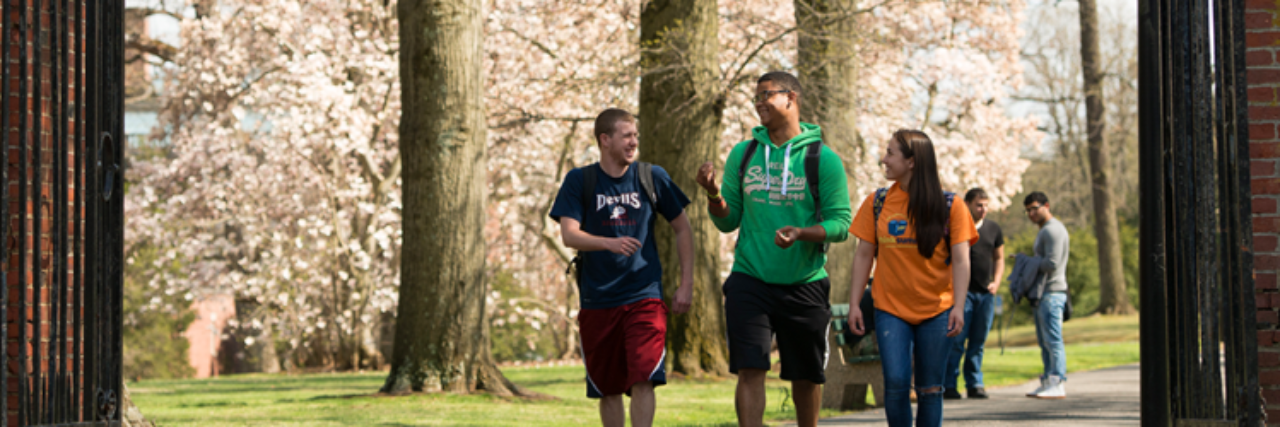Communication BA, Communication MA: combined degree

Admissions Planning Message
This program is not open for new enrollment. For more information see this announcement. You may also wish to browse through the program finder.
The five-year BA-MA accelerated program combines the Bachelor of Arts in Communication with a Master of Arts in Communication. Students can earn an MA by taking 30 credits of graduate-level coursework, nine of which are taken during the undergraduate senior year.
MA coursework typically takes one extra school year, including one summer or winter session course.
Program Learning Objectives
A Communication Studies graduate student will graduate with:
- The ability to write documents that present and evaluate information and opinion in a logical and analytic manner, incorporating research and documentation, and using style, grammar, mechanics, and format appropriate to an educated audience.
- The ability to prepare and deliver effective oral presentations, incorporating suitable research and using presentation software, in a style appropriate to a professional audience.
- The ability to understand and appreciate multiple cultures and global issues from historical, ethical and moral perspectives.
- Competency in informal (natural language) logic including the ability to analyze the logical structure of information, arguments, and opinions, and will be able to construct deductive and inductive arguments.
Potential Career Paths
Graduates of this program can enter many professions at a more advanced level. Most of the positions below are expected to experience above-average growth, according to the U.S. Bureau of Labor Statistics:
- Public Relations Manager
- Marketing Consultant
- Political Campaign Manager
- Technical Communication Manager
- Web/Media Contnet Producer
Admission into the 5-year BA-MA program
Students apply for the BA-MA program in their junior year (once they have earned 60-80 credits). Candidates for the five-year BA-MA program will have a strong academic record including:
Completion of at least two of the following:
- COMM2204 Introduction to Human Communication
- COMM2102 International Communication
- COMM2861 Communicating Through Media
- COMM3101 Research Methods
- COMM4941 Senior Internship
- COMM4007 Communication Theory
Completion of at least two other COMM courses at the 3000 level.
Maintaining a cumulative grade point average of 3.00 or higher.
Application process
The application process begins with a meeting with Dr. Christopher Caldiero, Director of the MA program, to learn about the program and how it could fit with their goals. This meeting will include an initial review of their academic record.
Students interested in the five-year BA-MA complete an application form which includes listing two references and providing a personal statement about their motivation in pursuing the degree. To get the application form, email Dr. Caldiero.
Degree plan
Undergraduate
Senior year undergraduate (9 graduate credits)
The senior undergraduate year of all BA MA students is a qualifying year. The three listed graduate courses count towards the completion of the B.A. degree. Students must earn a B grade or better in each of the three required classes in order to qualify for the graduate year. Failure to earn B grades or better in each required class means that the student will graduate at the end of the senior year with a BA in Communication Studies, but will not be allowed to continue into the graduate year.
Fall of undergraduate senior year
- MCOM 6001 Principles and Practices of Communication
Spring of undergraduate senior year
Graduate year (21 credits)
Summer (3 credits)
- MCOM 7002 International Communication and Culture, a cultural context course offered at FDU’s Wroxton, UK campus. Students typically take the summer course following the completion of their senior undergrad year. Students may also complete 3 credits with a Winter Session course.
OR
- MCOM context course
Fall (9 credits)
Spring (9 credits)
Students walk in commencement exercises at the end of the spring semester.